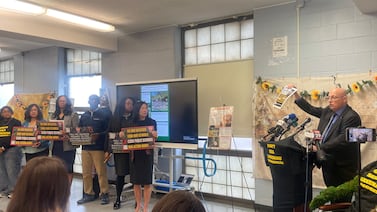As Colorado faces multi-billion-dollar budget deficits in coming years due to the economic fallout from the coronavirus pandemic, a new report warns that indiscriminate cuts to higher education will make it harder to get people trained and back to work, and disproportionately impact students of color.
Dr. Angie Paccione, executive director for the Colorado Department of Higher Education, said while the concept of sharing the pain equally sounds fair, it’s not.
“Because across-the-board cuts disproportionately impact some of our small, rural comprehensive four-year institutions who depend more heavily on state funds,” Paccione explained.
The University of Colorado Boulder receives roughly 5% of its budget from the state, but Adams State University in Alamosa gets 40% from the state.
Budget experts predict Colorado will see revenues decline by $2.1 billion in the fiscal year that starts in July 2021, with losses of $1.5 billion the following year.
Paccione noted the report’s recommendations that colleges make certificate and degree completion a priority is in sync with Gov. Jared Polis’ policy goals to prepare students for the workforce of the future.
“It’s not for the sake of the credential, it’s for the sake of them being able to maximize their earning potential and make the economic contributions to our community,” Paccione said. “The individual, the state and the economy really benefit when students complete their credential, their degree.”
The report also calls for a “students-first” approach and offers principles for policymakers to consider to support lower-income students of color and adult learners who are retraining after losing their jobs.
That means protecting financial aid and prioritizing the community-college systems that serve vulnerable populations.
Support for this reporting was provided by Lumina Foundation.







